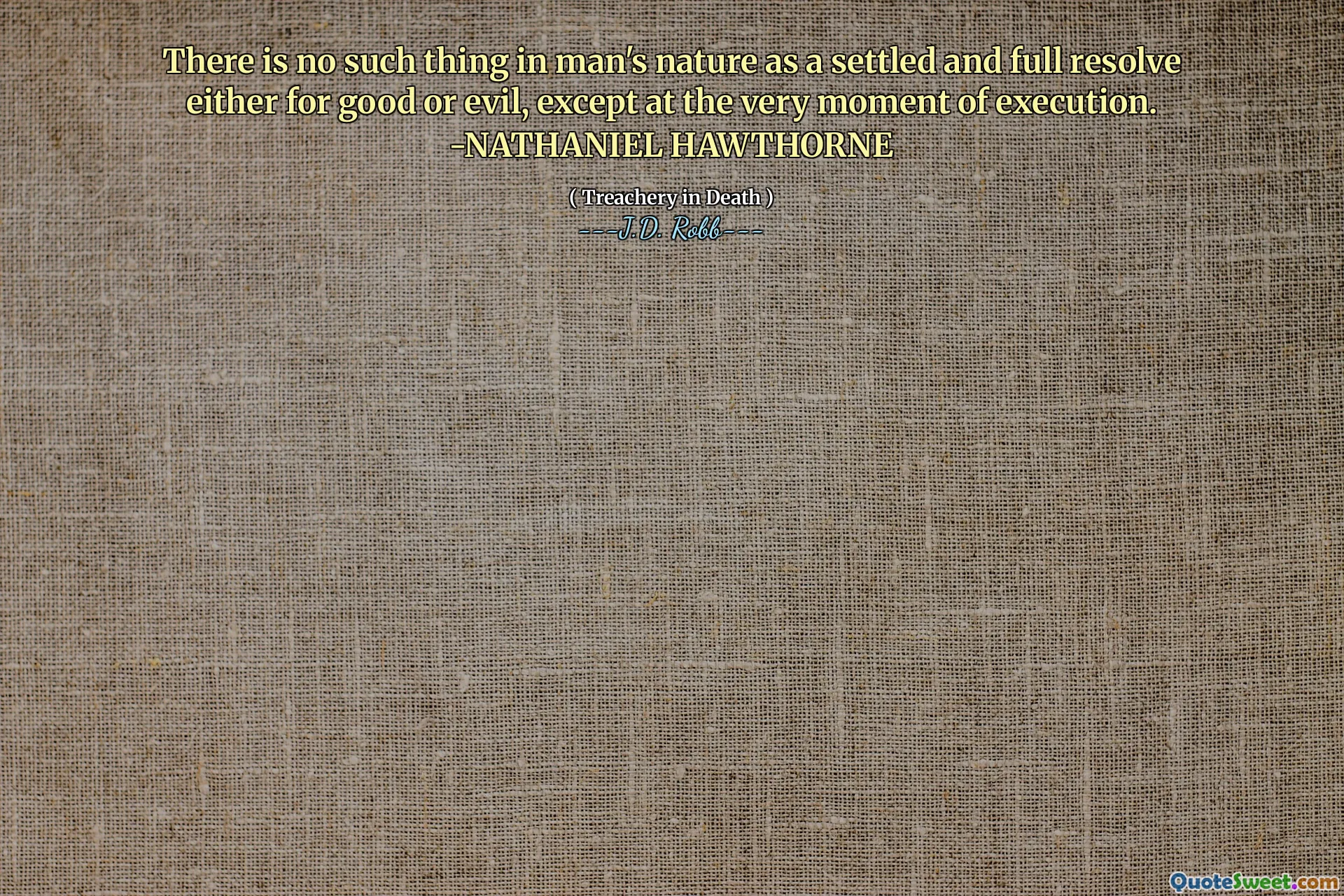
There is no such thing in man's nature as a settled and full resolve either for good or evil, except at the very moment of execution. -NATHANIEL HAWTHORNE
Nathaniel Hawthorne's quote emphasizes the transient nature of human resolve. It suggests that individuals often lack a consistent determination towards good or evil until they are faced with a decisive moment. This indicates that our intentions can shift, highlighting the complexity of human morality and decision-making. The idea challenges the notion that people are inherently good or evil, proposing instead that actions speak louder than intentions.
In the context of J.D. Robb's "Treachery in Death," this quote resonates with themes of trust, betrayal, and the motivations behind characters' choices. The characters may grapple with their inner conflicts, revealing a dynamic interplay between their moral compass and the circumstances they face. Hawthorne's insight serves as a reminder that our judgments of others can be misguided, as true intentions often become clear only through actions taken at critical moments.





